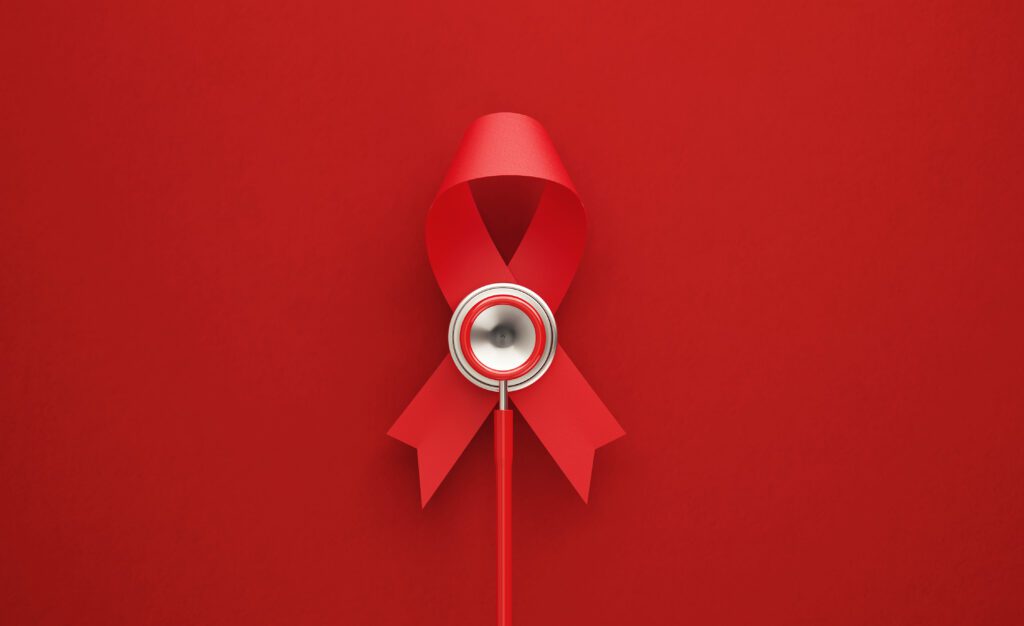by MICHELE TRICE
Sponsored by Central Florida Health Care
World AIDS Awareness Day is December 1, and people around the globe will focus attention on Human Immunodeficiency Virus (HIV) and Acquired Immunodeficiency Syndrome (AIDS) testing, treatment, and life with HIV.
According to APRN Linda Gellatly, Central Florida Health Care’s infectious disease provider, there are just more than 3,000 individuals living with HIV in Polk County, as of 2022.
She says the Centers for Disease Control & Prevention advises everyone between the ages of 13 and 64 get tested for HIV at least once, more often if an individual has multiple sexual partners. Early testing can be the key to successful treatment, Gellatly says.
“The earlier someone gets into care, the better for them,” she says. “People who get into care late are usually sick or diagnosed with AIDS, which brings a lot more possible complications.”
“The difference between HIV and AIDS determines how sick you are,” she continues. “The CDC and World Health Organization advise that if individuals with HIV can keep their viral load suppressed, they won’t be passing along the disease to anyone else.”
Gellatly explains that if the disease is undetectable in an individual thanks to treatment options available, then the disease is also untransmittable. Virus levels are checked via blood tests, and the success of medication is determined by the virus levels shown in bloodwork.
With 15 locations in Polk, Hardee, and Highlands Counties, Central Florida Health Care offers a range of services for individuals living with HIV.
The care is part of its mission to serve as the premier patient-centered medical home offering quality, affordable primary and preventive healthcare.
CFHC operates under the same HIPAA (Health Insurance Portability and Accountability Act) standards as other medical providers.
“We are 100 percent confidential and compliant,” Gellatly says.
“HIV is the one STD we cannot cure,” she says. “But we can treat it.”
Treatment for HIV may include medication that is taken as one pill once a day. “As long as patients are compliant with taking the medication,” Gellalty says, “they can live a normal, active, healthy life.”
“HIV is now considered like having diabetes or hypertension,” she continues. “It’s a well-managed disease. Pregnant women are able to have babies born without HIV as long as they are in care during the pregnancy.”
Following testing, patients who receive a positive diagnosis and who have a difficult time accepting the news are recommended for counseling, which CFHC offers in-house.
“Sometimes patients do not want to believe the diagnosis and don’t start treatment,” Gellalty says. “We always encourage them to come back if they want to talk more or be tested again.”
Without treatment, the virus can make patients quite ill.
“It can cause thrush and increase the risk of cancer if left untreated,” she says. “The sooner someone gets it under control, the better the outcomes.”
CFHC can offer PrEP, a pre-exposure medication for individuals. PrEP can lower the chances of contracting HIV by as much as 90 percent. In addition to providing HIV testing and treatment, CFHC also provides treatment for Hepatitis C and other STDs.
For individuals who have Hep C but no health insurance, it’s able to offer care on a sliding scale.
Gellatly encourages everyone to get tested and to know their status, as not doing so enables spread.
